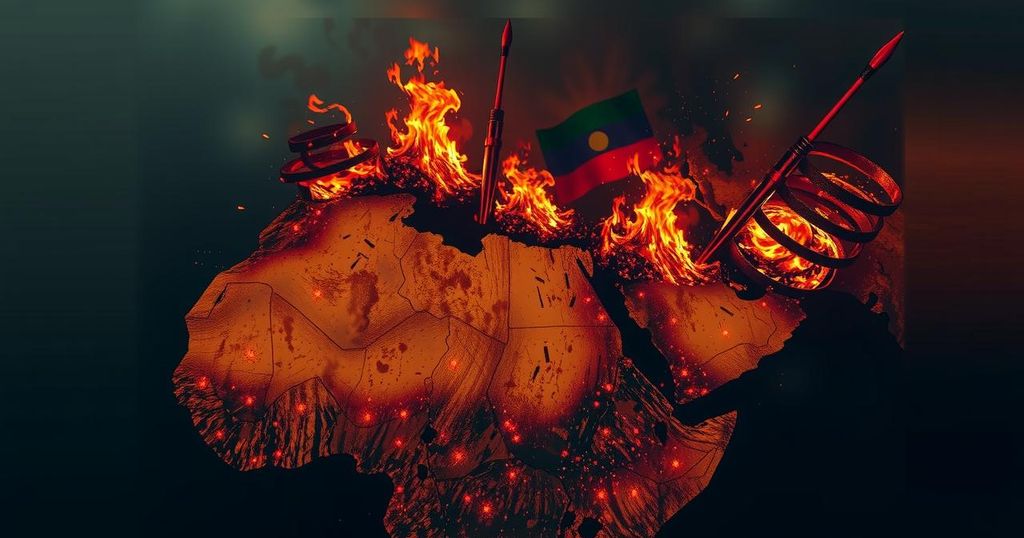Escalating Conflict in Sudan: A Humanitarian Catastrophe and Global Concern

The conflict in Sudan has intensified, fueled by foreign powers, leaving millions in dire need of aid and facing catastrophic conditions, including widespread violence and food insecurity. UN Secretary-General Antonio Guterres has called for an immediate ceasefire, stressing the responsibility of both conflicting sides to protect civilians and ensure humanitarian access.
The ongoing conflict in Sudan is witnessing an alarming escalation, as military and paramilitary factions intensify their assaults, exacerbated by the involvement of foreign powers, as articulated by United Nations Secretary-General Antonio Guterres. The dire situation has plunged millions into a severe humanitarian crisis characterized by hunger and disease. In his address to the U.N. Security Council, Mr. Guterres emphasized the potential for the 18-month war to ignite regional instability, affecting areas from the Sahel to the Horn of Africa and extending to the Red Sea. He reported a grim reality for the Sudanese populace, who are facing horrific crimes including mass killings and widespread sexual violence, particularly in east-central Gezira province, where recent attacks have resulted in over 120 fatalities. The conflict, which erupted in mid-April 2023, has its roots in longstanding tensions between military leaders and paramilitary groups, notably leading to a catastrophic humanitarian crisis with more than 11 million people displaced, including 3 million fleeing to neighboring countries. Casualties have soared, with reports indicating over 24,000 deaths since the onset of hostilities. The humanitarian landscape is further darkened by severe food insecurity; 750,000 individuals are at risk of famine in displacement sites. Guterres called for an immediate cessation of hostilities and emphasized the obligation of both sides to protect civilians and facilitate humanitarian relief efforts. He expressed profound horror at the continuing violence directed at civilians by the paramilitary Rapid Support Forces and the Sudanese Armed Forces, as well as the indiscriminate airstrikes affecting populated areas. The war traces back to a pro-democracy uprising that led to the ousting of Sudan’s long-time dictator, Omar al-Bashir. However, the transition to democracy was short-lived, giving rise to severe human rights violations that resemble the atrocities witnessed during the Darfur genocide two decades ago, when significant numbers of the population were murdered and displaced. The International Criminal Court’s prosecutor has indicated that there are grounds to investigate potential war crimes and crimes against humanity being executed by both factions in Darfur.
Since mid-April 2023, Sudan has been engulfed in a violent conflict between its military and paramilitary forces. This unrest is rooted in a historical struggle for power that has culminated in widespread atrocities, particularly against marginalized communities in Darfur. The conflict has displaced millions and led to severe humanitarian needs, with famine conditions reported in several regions. The involvement of external powers adds another layer of complexity, facilitating further violence and instability. The situation highlights the need for urgent international attention and action to prevent a broader regional crisis.
In conclusion, the conflict in Sudan represents a catastrophic humanitarian crisis exacerbated by foreign interference and internal power struggles. Mr. Guterres’s statements illuminate the urgent need for both sides to cease hostilities and prioritize civilian protection, as well as the essential delivery of humanitarian assistance. The historical context of violence in Darfur serves as a somber reminder of the dire consequences of unchecked aggression and the necessity for accountability in such grave violations of human rights.
Original Source: www.africanews.com








